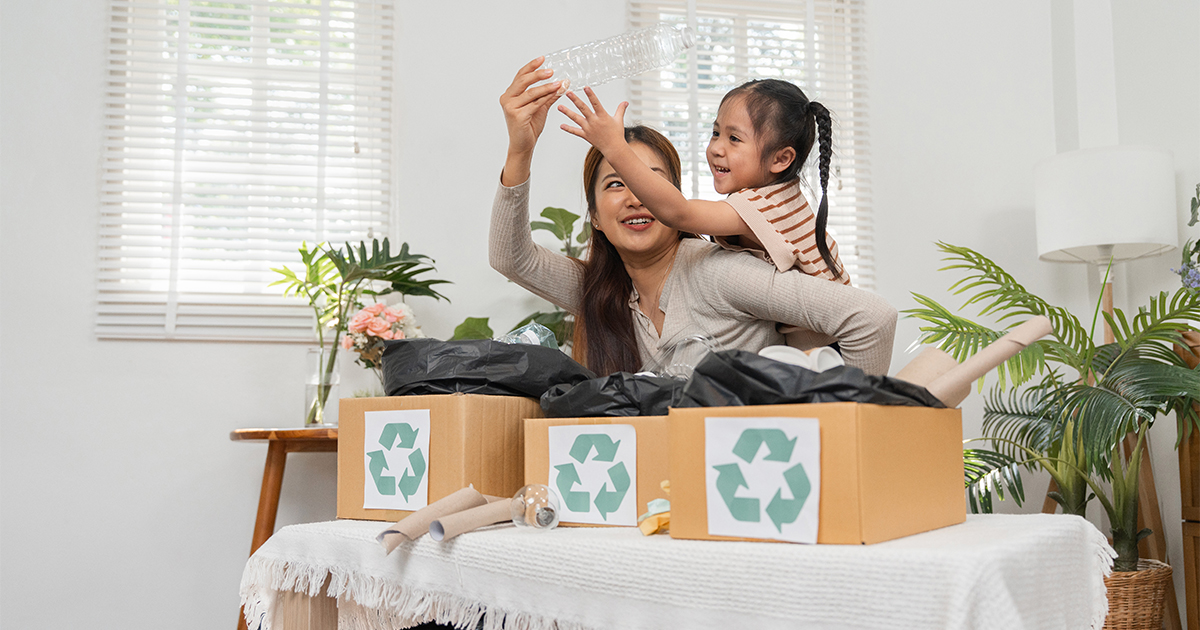Hyundai Motorstudio Senayan Park
Hyundai Motorstudio Senayan Park
Newsroom
The official news from Hyundai Motorstudio Senayan Park and a collection of innovative articles on mobility and sustainability here.
-
Fun Ways to Reduce Plastic Waste with Children at Home
- Hyundai Motorstudio Senayan Park Senayan Park 2025.08.04
-
Plastic waste is one of the biggest environmental problems in the world today. Hard-to-decompose plastics pollute soil, water, and oceans, threatening ecosystems and human health. Therefore, teaching children from an early age how to reduce plastic waste is essential to form a generation that cares about the environment and behaves sustainably.
This article will discuss practical tips and educational games that can be done with children at home to reduce plastic waste, how families can actively play a role, and sustainability messages that are easy to remember and fun.
Why Is Reducing Plastic Waste Important?
Single-use plastics such as plastic bags, beverage bottles, straws, and food packaging are the largest contributors to plastic waste in the environment. Poorly managed plastic waste can pollute rivers and oceans, harm wildlife, and even enter the human food chain through microplastics.
By reducing the use of plastic, we help reduce waste that ends up in landfills and oceans, while saving natural resources and energy used in plastic production. Early education to children about this can foster awareness and sustainable good habits.
Practical Tips for Reducing Plastic Waste with Children
Here are some simple and effective tips that can be done at home with children to reduce plastic waste:
1. Use Eco-Friendly Shopping Bags
Teach your child to carry a cloth bag or shopping bag that can be used repeatedly when shopping. Avoid using single-use plastic bags that are only used for a short time and then thrown away.
2. Choose Products with Eco-Friendly Packaging
When buying items, choose products that use minimal packaging or packaging that is easy to recycle. Explain to your child why choosing a product like this is important to reduce plastic waste.
3. Use Refillable Drinking Bottles and Feeding Containers
Replace single-use plastic bottles with refillable drinking bottles. Teach children to bring food in reusable containers to reduce single-use packaging waste.
4. Make Compost from Organic Waste
Processing organic waste into compost at home can reduce the amount of waste thrown away and provide benefits for plants. Involve children in this process as an educational activity.
5. Recycle and Sort Waste
Provide separate bins at home for organic, plastic, and paper waste. Teach children how to sort waste properly so that the recycling process can run effectively.
Educational Games for Children to Get to Know Plastic Waste
Teaching children about reducing plastic waste can be done in a fun way through the following educational games:
1. Garbage Sorting Game
Make the game simple by providing a few boxes with organic, plastic, and paper on it. Have your child put toy trash or pictures of trash into the appropriate box. This trains the ability to sort waste from an early age.
2. Making Crafts from Used Goods
Invite children to make handicrafts from used plastic items such as bottles, straws, or bottle caps. In addition to honing creativity, children learn that plastic waste can be turned into useful objects.
3. The Plastic Saving Challenge
Create a family challenge to reduce plastic use for one week, such as not using plastic bags or plastic straws. Give small gifts as motivation to get your child excited.
4. Watching Educational Movies
Choose an educational film or video that explains the impact of plastic waste and how to reduce it. After watching, discuss with your child so that the message received is stronger.
How Families Can Be Actively Involved
The role of the family is very important in supporting the reduction of plastic waste. Here are some ways families can participate:
- Be an Example: Parents must practice a plastic-free lifestyle so that children can emulate these behaviors.
- Provide Eco-Friendly Equipment: Provide cloth bags, refillable bottles, and separate trash cans at home.
- Invite Discussion and Education: Have frequent discussions about the importance of protecting the environment and how to reduce plastic waste.
- Set Activity Schedule: Schedule a special time to do eco-friendly activities with your family.
- Participate in an Environmental Program: Participate in a community or school program that supports plastic waste reduction.
A Fun and Memorable Sustainability Message
Making sustainability messages fun and memorable is essential for children to internalize those values. Here are some message ideas that you can use:
- "Bring Your Own Bags, Reduce Single-Use Plastic"
- "Refillable Bottles, the Earth Becomes Healthy"
- "Sort Waste, Save the Sea and Animals"
- "Play Creative with Used Items"
- "Save Plastic, Love Our Earth"
Use colorful songs, stories, or posters to reinforce this message at home and school.
Reducing plastic waste with children at home is not only about maintaining cleanliness, but also instilling sustainability values that will shape a better future. Through practical tips and educational games, families can together make a real contribution to reducing plastic waste.
Small steps taken consistently will have a big impact on the environment and future generations. Let's start at home and involve children in caring for the earth in a fun and meaningful way.




